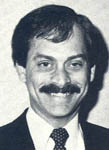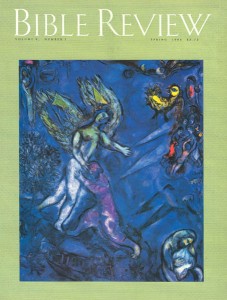Innocent or guilty? What verdict does modern Bible scholarship pronounce on Jacob, who tricked his older brother Esau out of an inheritance? Was Jacob guilty? Or was the blame his mother Rebekah’s? In the cycle of deceptions that follows Jacob’s in the Bible—entwining Laban, Jacob, Rachel and more—where does the lying end?
In this issue of Bible Review, marking our first anniversary, we present the perspectives of five outstanding authors on narratives in the Jacob cycle, Genesis 25–50.

Richard Elliott Friedman, associate professor of Bible and comparative literature at the University of California at San Diego, opens the discussion with “Deception for Deception.” With a little humor (“Go try and raise a family,” Friedman sighs) and a great mastery of literary detail, he shows that every act of deception is recompensed later in the story—until Joseph breaks the chain by not repaying his brothers for the harm they had done him in his youth.
Author of The Exile and Biblical Narrative, Friedman was visiting scholar at Oxford University in England last fall.
Jacob, vividly portrayed by Friedman as an artful deceiver, is for Carl Evans, morally upright. In “The Patriarch Jacob—An Innocent Man,” Evans looks at the narrative from Jacob’s perspective and points a finger at Esau for his cavalier attitude toward his birthright and at Rebekah for her insistence that Jacob play his part in a scene that she directs.
Already a library member? Log in here.
Institution user? Log in with your IP address.

